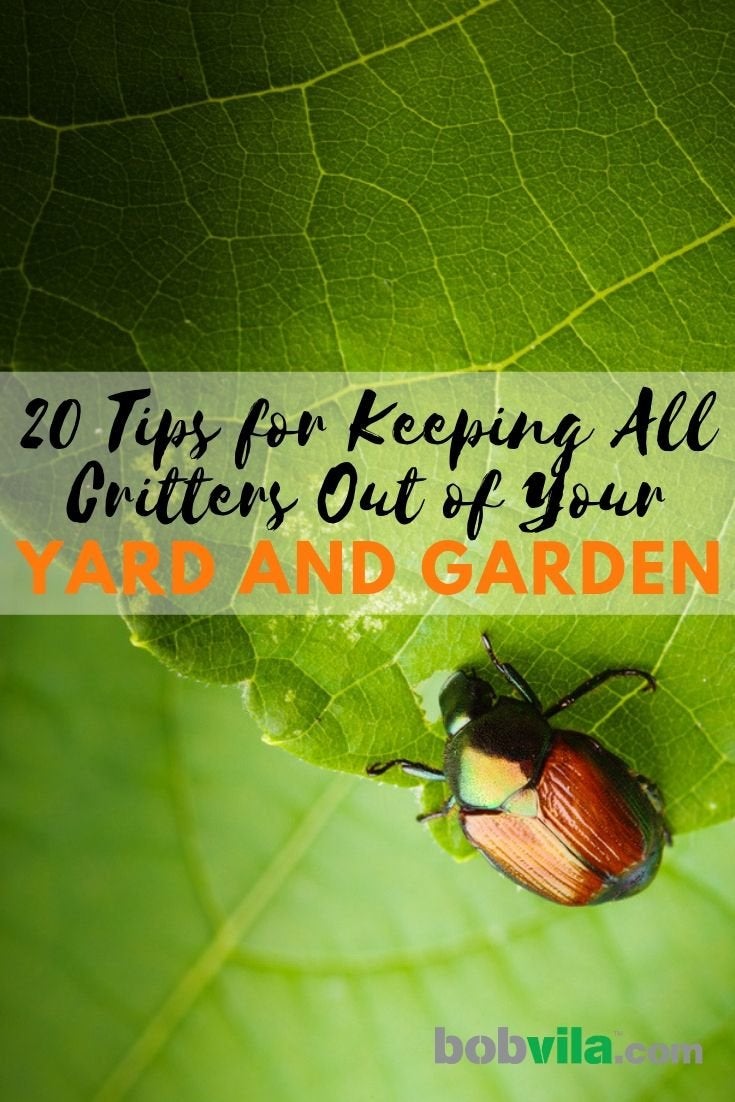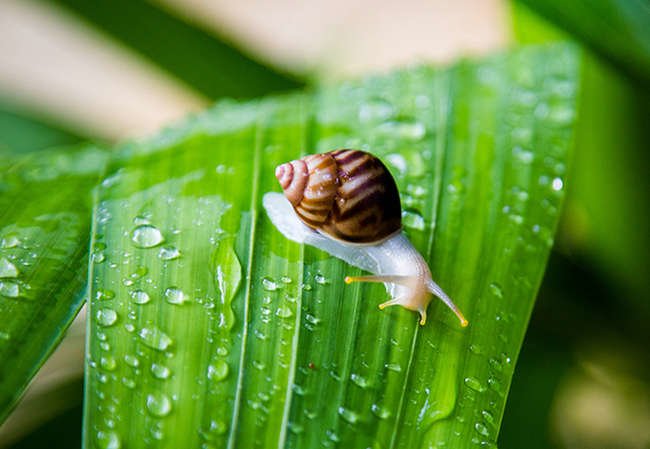

We may earn revenue from the products available on this page and participate in affiliate programs. Learn More ›
Home Advice You Can Trust
Tips, tricks & ideas for a better home and yard, delivered to your inbox daily.
By signing up you agree to our Terms of Service and Privacy Policy.
Caterpillars
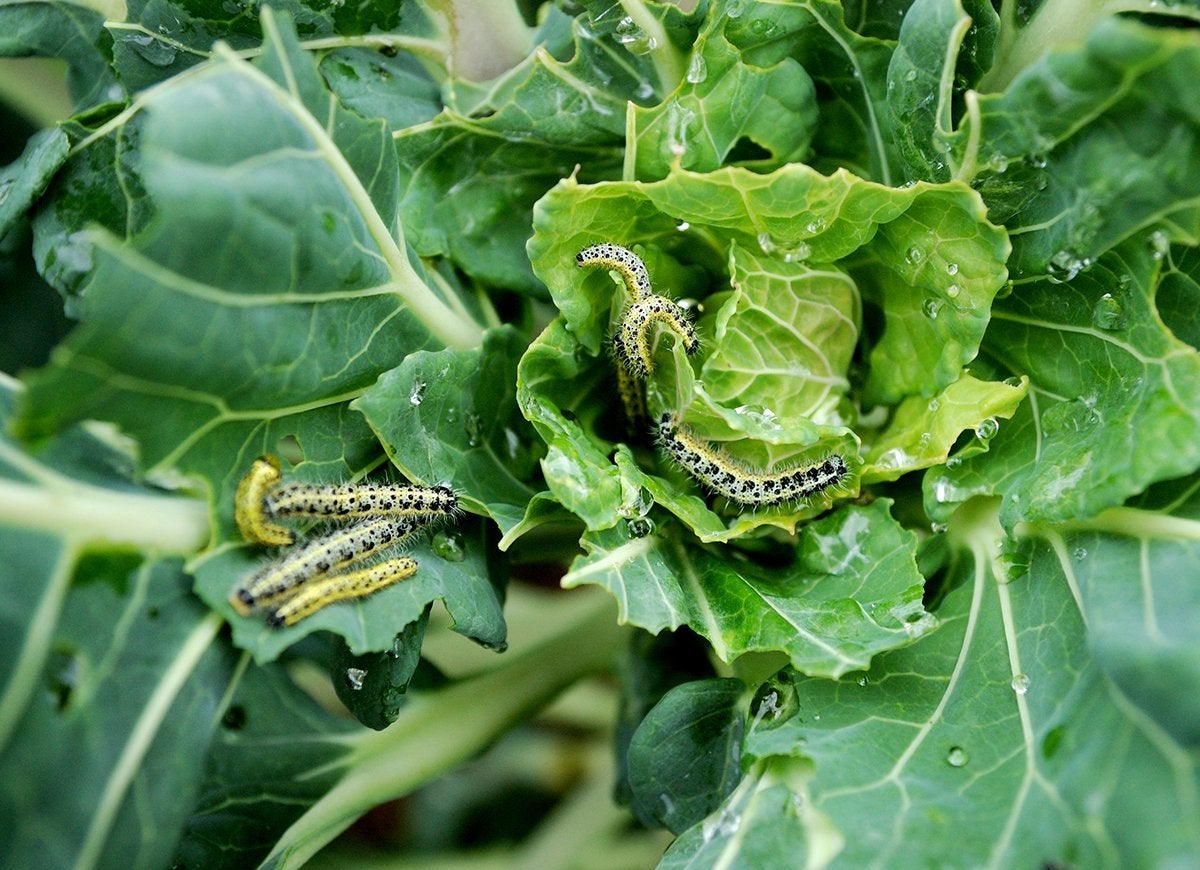
While it’s a treat to host striking caterpillars that turn into beautiful butterflies, such as the monarch, it’s far more common to deal with voracious crawlers such as the green budworm, which loves to chow down on rose leaves, geraniums, petunias, and leafy green vegetables. If your garden is overrun with these pests, your best bet is a dose of Bacillus thuringiensis (Bt), which is a type of bacteria that only affects caterpillars. Found at most nurseries and home improvement centers in both spray and powder forms, this treatment is effective at killing caterpillars when applied biweekly—while leaving other animals (and humans) unharmed.
Ants
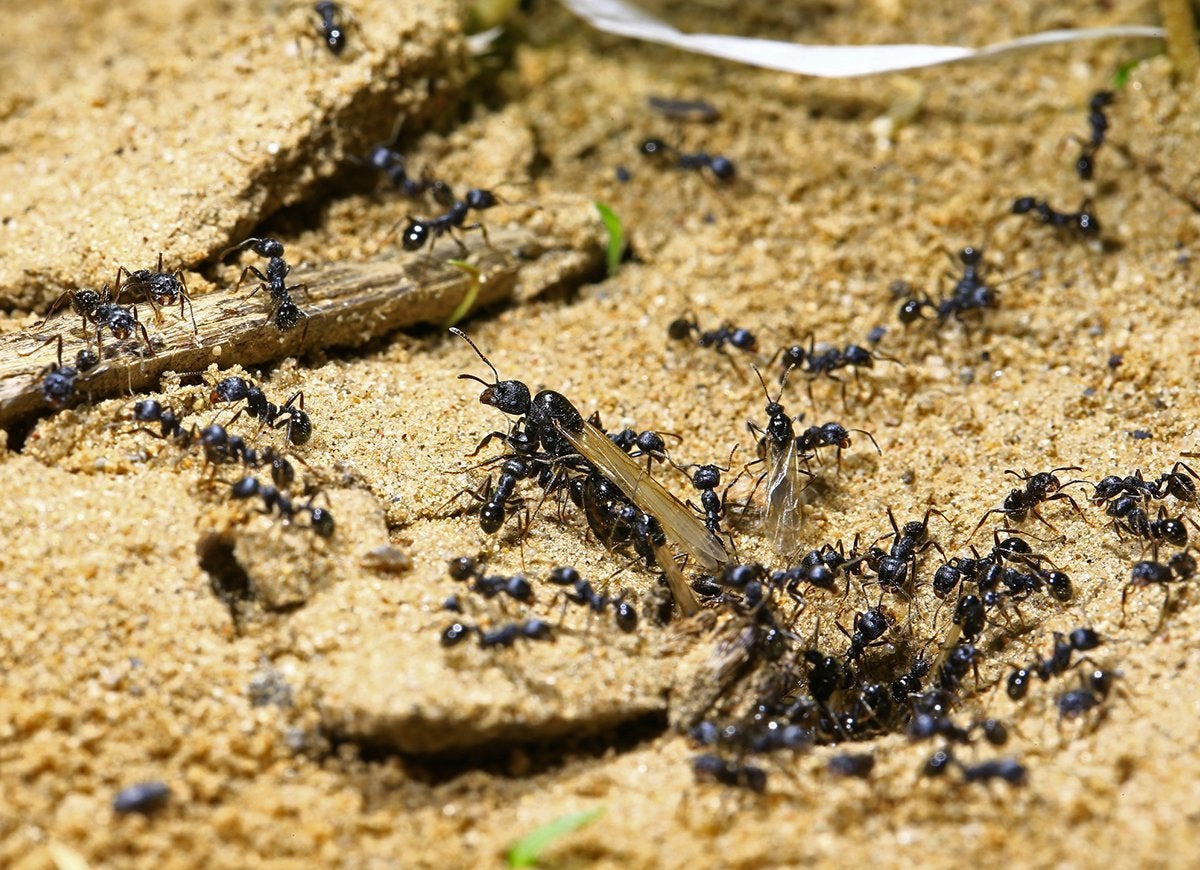
Whether black or red, ants serve their purpose in the backyard by eating the eggs of other species of insects to keep critter populations in check, aerating the soil, pollinating flowers, and even protecting some varieties of plants. So before you make a move to crush or spray these industrious insects, learn a little more about the important work they do. However, if you’re noticing an infestation near the outdoor kitchen or picnic table, the problem is probably you! Don’t leave food in the yard, and wipe crumbs off the patio furniture or grilling station immediately after eating, or else risk welcoming a steady stream of six-legged visitors into your relaxation zone.
Related: Solved! This is How to Get Rid of Ants in the Kitchen Once and for All
Aphids
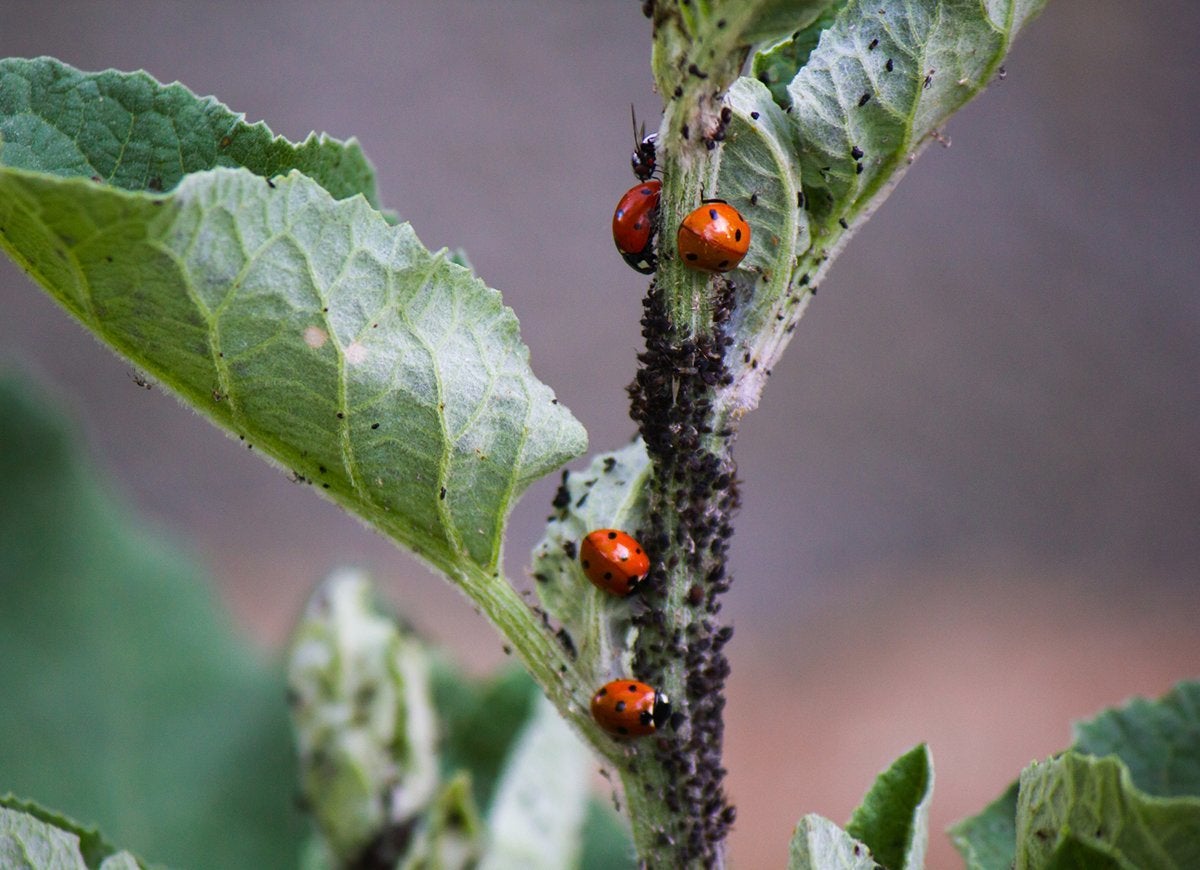
Aphids, which can be green, black, tan, or yellow, are one of the most common—and destructive—garden marauders. These little insects especially love roses, although you’ll find them clustered on the new growth of many popular annual and perennial flowers. What’s the antidote? Why, ladybugs, of course. While humans generally find ladybugs cute, they are fearsome aphid predators. A single ladybug can consume more than 50 aphids each day.
You can buy ladybugs at many garden centers. For the best results, mist the ladybugs with water as soon as you get them home, then pop their container into the refrigerator until you can release them into the garden that same evening at dusk. Lightly spray the aphid-infested plant with water, and then place the ladybugs at the base of the plant. This placement will encourage the ladybugs to crawl up the stalk of the affected plant in search of prey, rather than immediately flying away.
Japanese Beetles
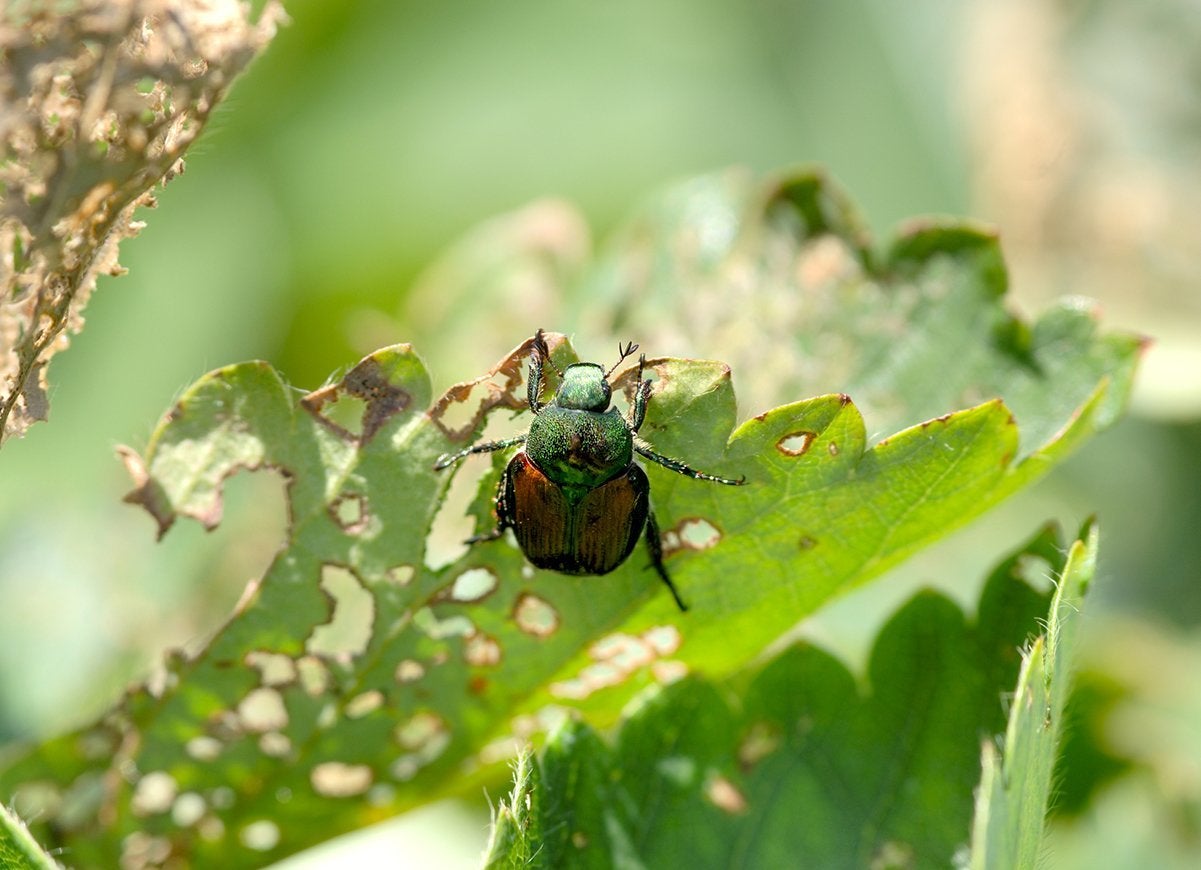
Although their shiny green and copper coloring is pretty, the damage they do to flowers, lawns, shrubs, and vegetables is decidedly unattractive. These hungry beetles can devour foliage right down to the stems and veins, leaving only a leaf “skeleton” behind. To get rid of adult beetles, head out to your garden early in the morning with a bucket of soapy water. You’ll find that the beetles are slow and sleepy in the early hours of the day, so you can easily knock them into the bucket, where they’ll quickly drown.
Snails and Slugs
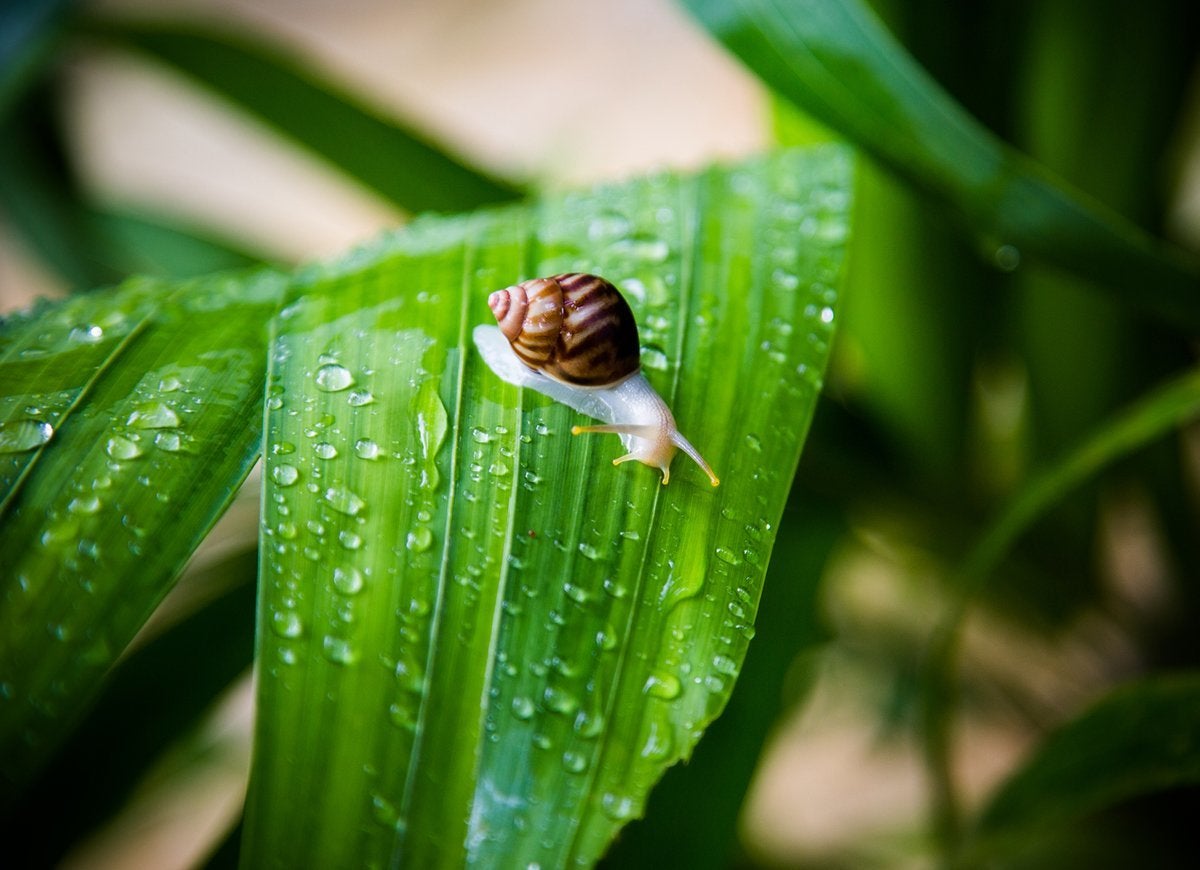
They might travel slowly, but snails and slugs can certainly eat quickly, sometimes devouring the entirety of a small plant overnight. While there are many snail baits on the market, if your problem isn’t too severe, you can often control it with nothing more than a shallow bowl filled with beer—no need for the expensive stuff. Set the beer on the ground near the spot where you see the most damage, and leave it overnight. Slugs and snails are attracted to the yeast in the brew, but once they crawl in for a drink, they generally drown.
Gophers
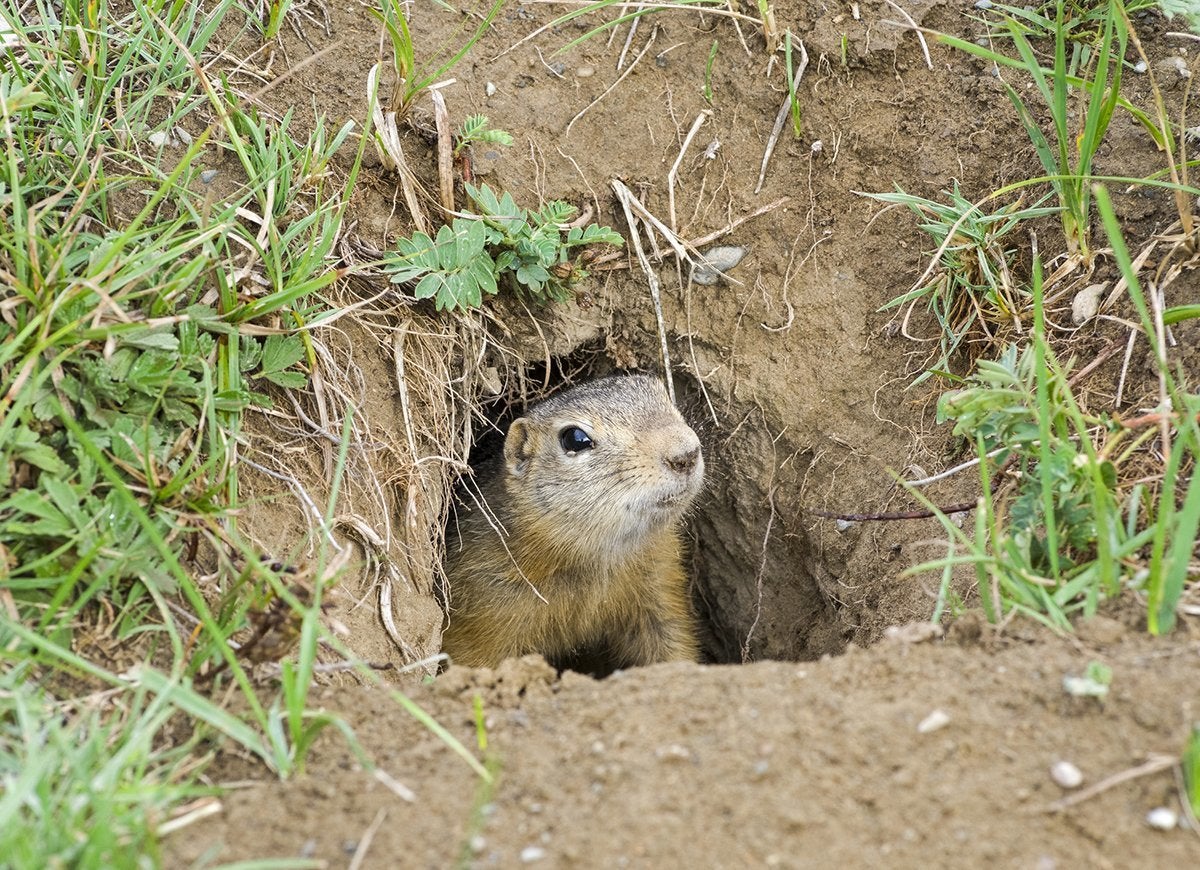
If you find signs that a gopher is living under your turf, take comfort in knowing that the furry creature is probably on its own, as this animal is a generally solitary creature. Still, even one gopher is capable of devouring the roots, stems, and foliage of your lawn and other garden plants while digging tunnels topped with small mounds of soil. Although results are mixed, many gardeners claim that castor oil is effective at driving away gophers. Scatter the repellent around your yard, particularly over the gopher holes. The castor oil won’t kill the gopher, but it will encourage them to seek new homes elsewhere.
Raccoons
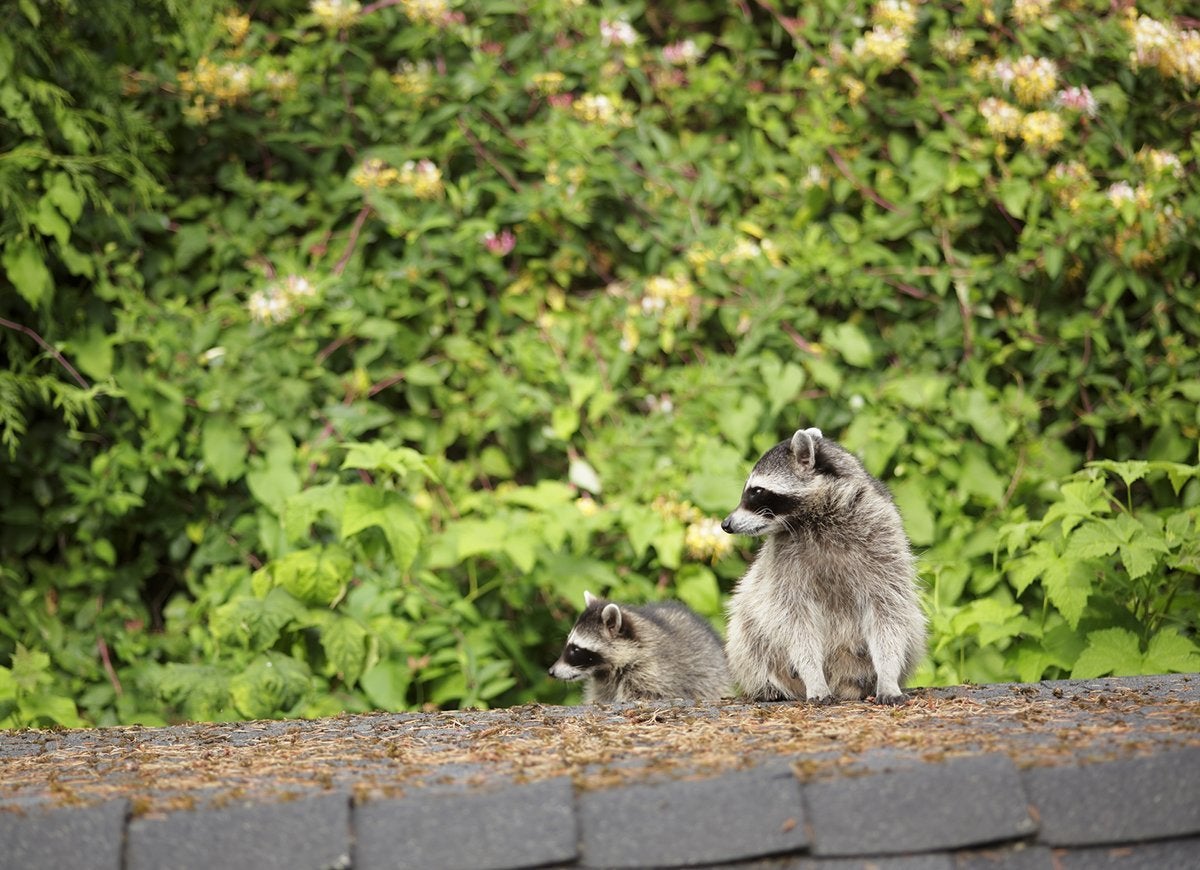
While their markings, reminiscent of a bandit’s mask, may be cute, these persistent yard raiders can and will tip over your trashcans, pet bowls, or bird feeders if given the chance. You can discourage their visits by keeping trashcan lids tightly secured, bringing pet food inside at night, and removing bird feeders from your property. If that doesn’t do the trick, mix a bottle of hot sauce into a gallon of water, and spray the mixture over the areas where you usually spot the raccoons. These animals don’t like the strong smell and taste, and will usually head elsewhere to forage for food.
Bears
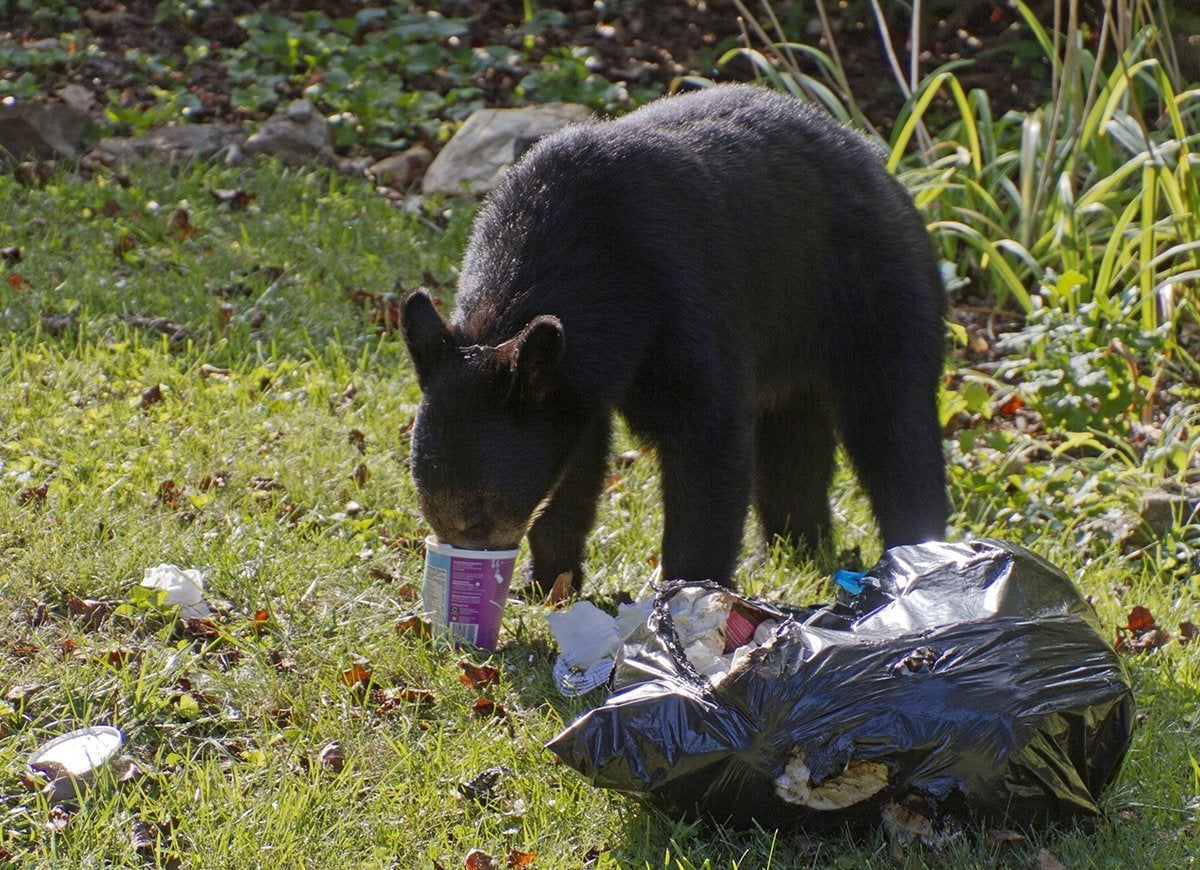
While many homeowners don’t have to worry about visits from wandering bears, those who live in slightly more removed suburbs, exurbs, towns, or rural areas know that a hungry bear can do serious damage to your yard, automobile, or property. If you do spot a bear, know that this omnivore is probably just foraging for an easy meal, and that your trashcan is likely its intended target. Invest in bear-proof trash bins and composters, and consider bringing in birdfeeders and pet food bowls at night to prevent unwanted visits from these large mammals.
Deer
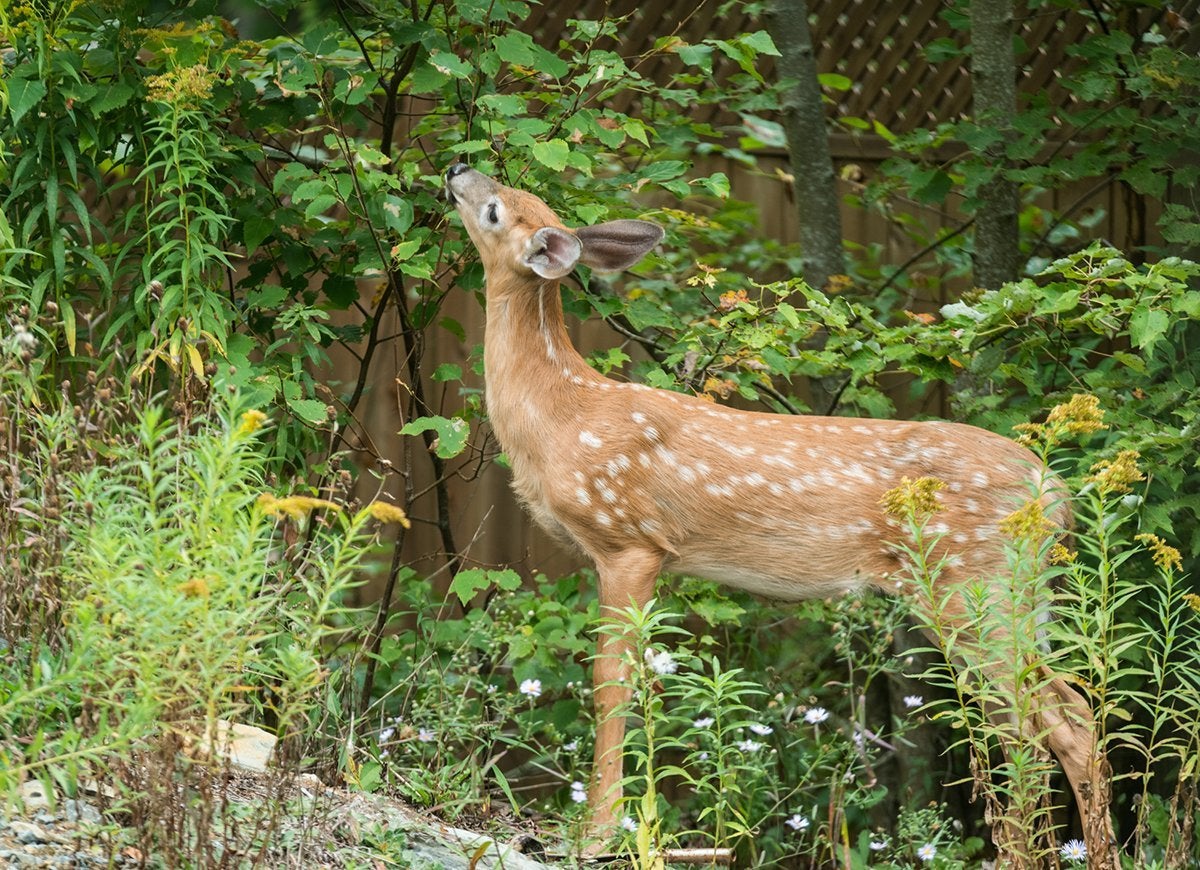
They may be cute, but that doesn’t mean they should get free reign of your flower and vegetable beds. If a high fence around your garden isn’t an option, and you don’t have a dog to patrol the premises, you may find help from a wide range of DIY or store-bought deer repellants including garlic, blood meal, cayenne, human hair, soap flakes, or motion sensor devices.
Rabbits
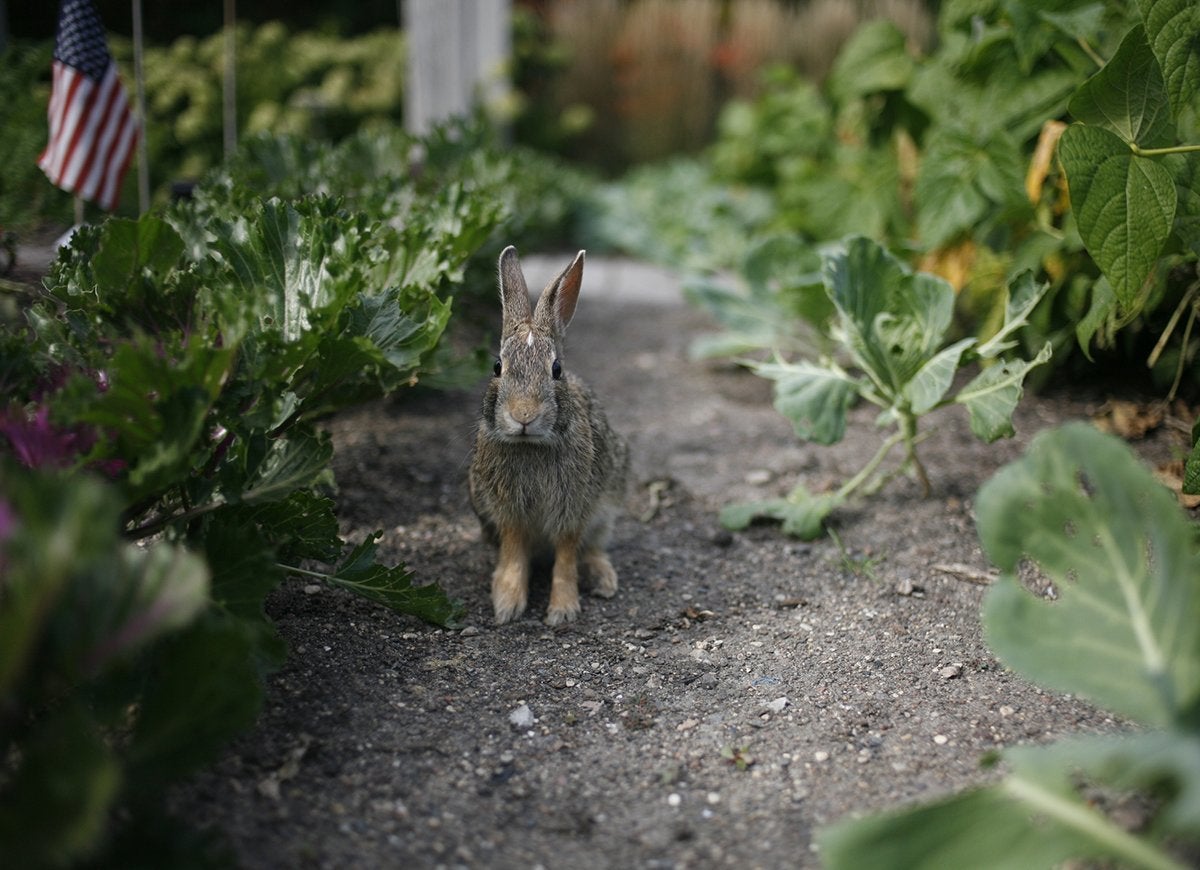
Rabbits can wreak tremendous damage on flowers, vegetables, and even grass. The best defense against them is a rabbit-proof fence; that means at least two feet high so they can’t jump over it, extending at least six inches below the soil so they can’t dig under it, and made of chicken wire or mesh so they can’t squeeze through.
Cats
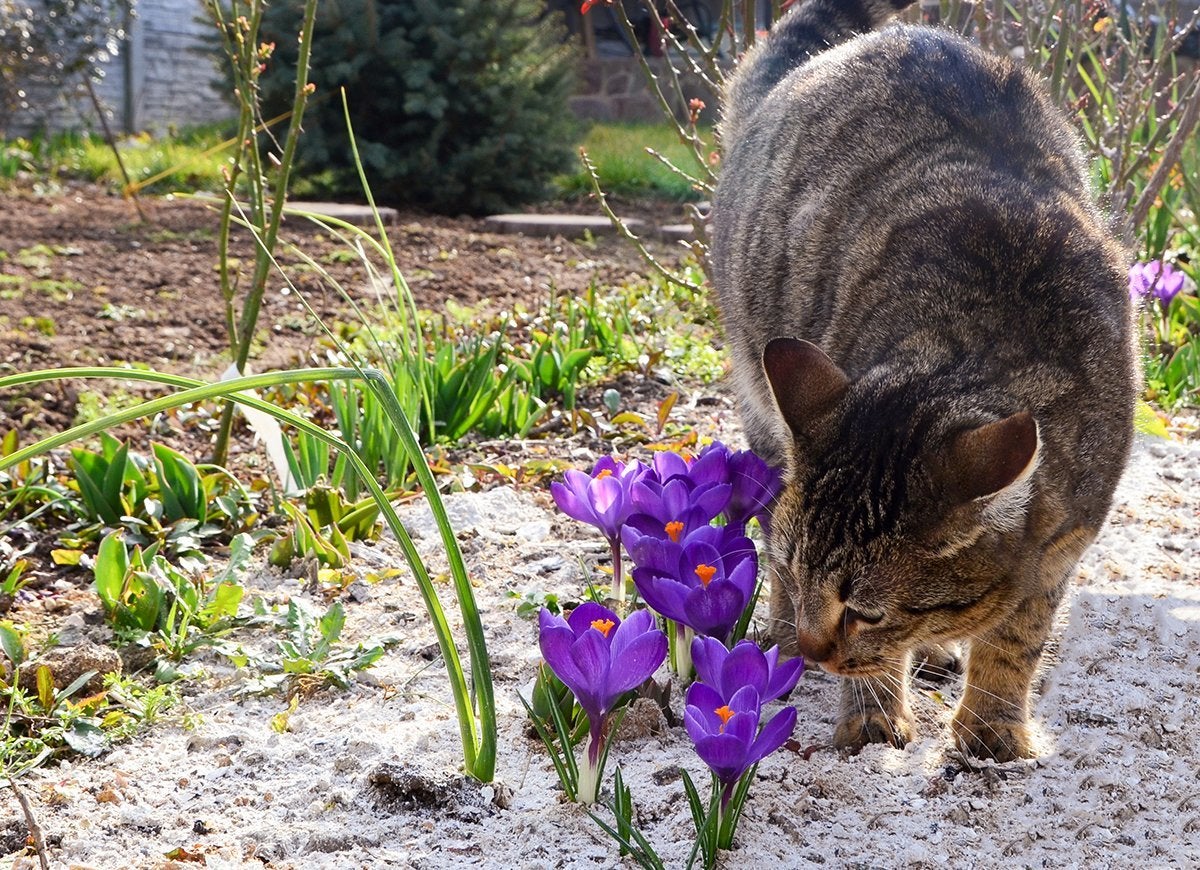
While cats help chase away rodents, they can become pests themselves if they use your flowerbeds or children’s sandbox as their own private litter area. Cover sandboxes with a tightly fitting lid when your kids aren’t playing, and defend your beds by laying down mulch that they will hate walking on, such as pinecones or lava rock. Of course, a barking dog is also a powerful deterrent to most cats.
Bully Birds
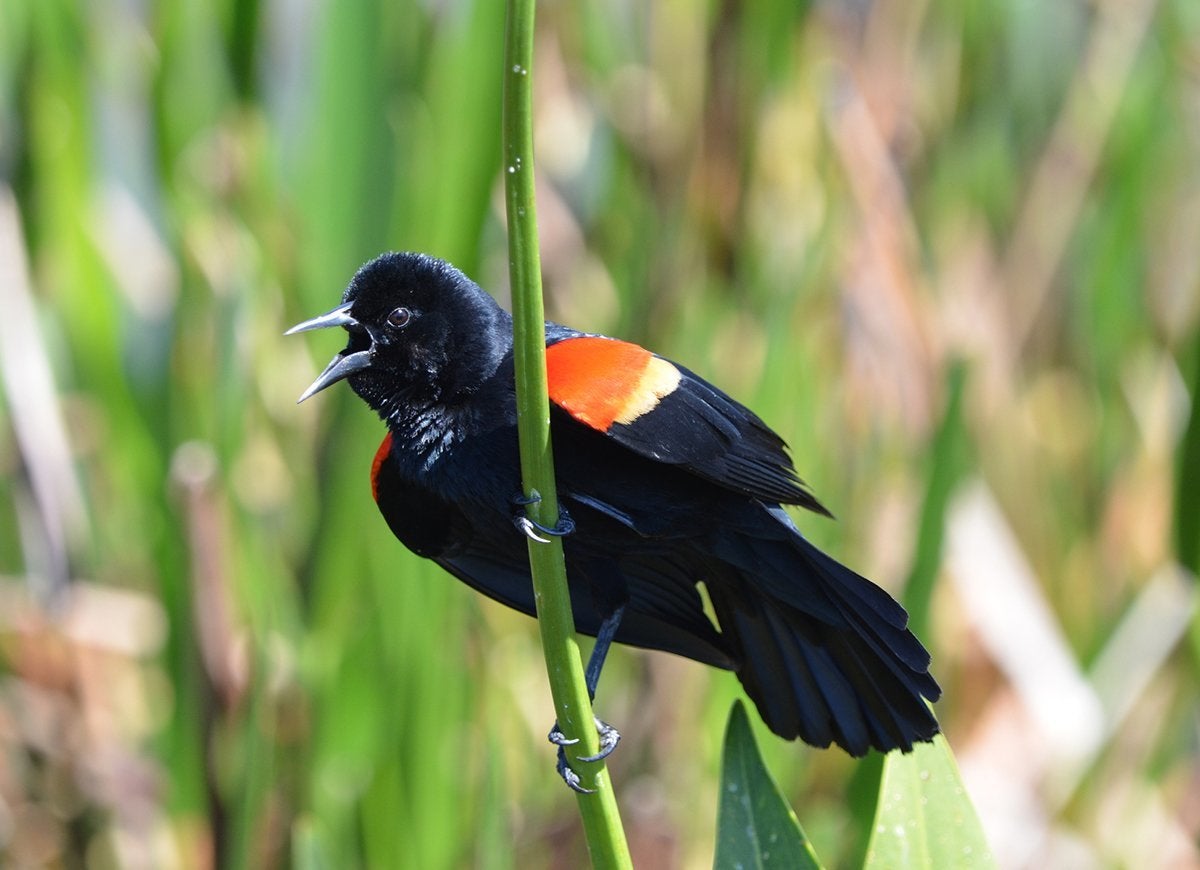
Bully birds are the less desirable feathered visitors to your backyard feeders that tend to drive away the smaller songbirds that add beauty to your yard. Troublemaker species include grackles, pigeons, starlings, blackbirds, and sometimes crows. If regular visits from bullies are becoming a problem, consider switching to feeders specifically designed for smaller birds such as finches. These feeders have small ports that are easy for finches and other small songbirds to access, while blocking the beaks of larger birds.
Leaf Miners
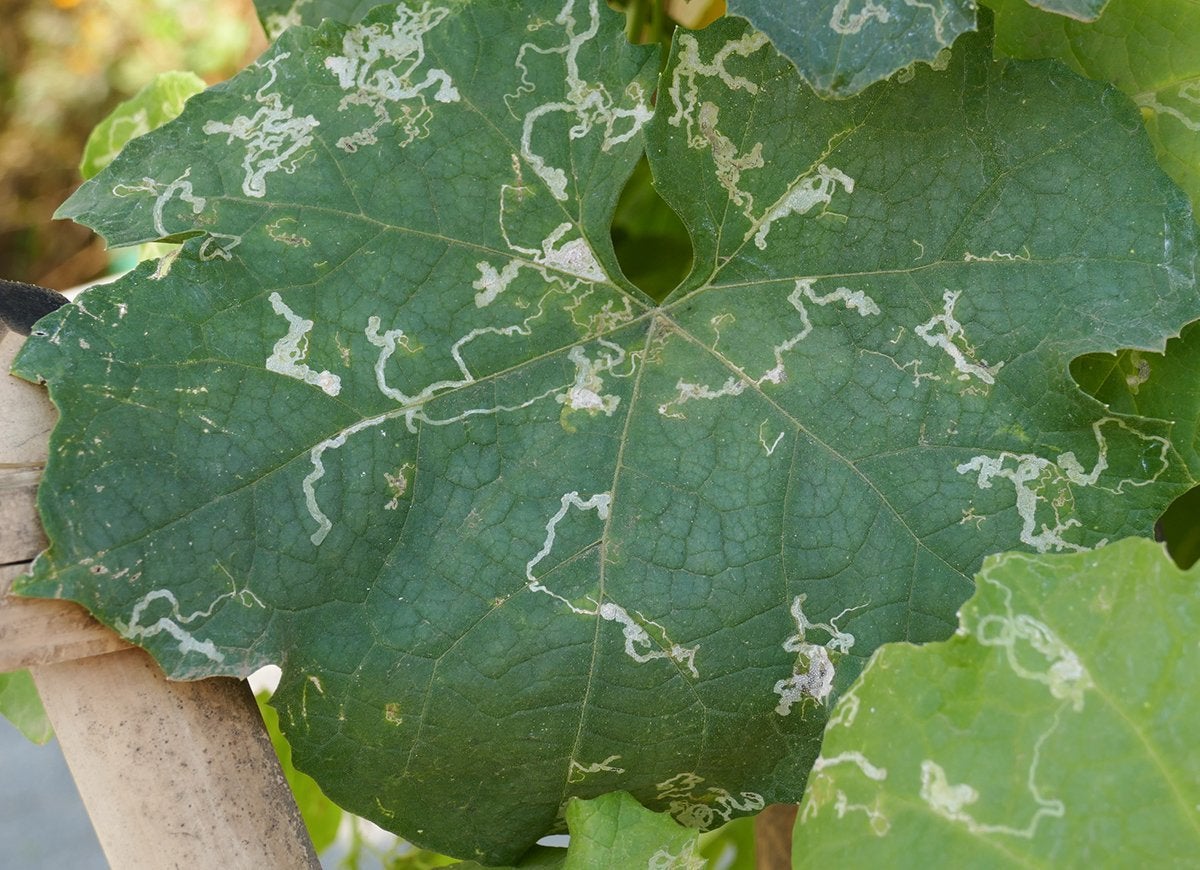
If you’ve spotted swirled patterns on the leaves of your annuals, perennials, or small shrubs, you might be looking at the tunnels of a leaf miner. These garden pests are the larval form of several different insects, but what all share in common is their tendency to tunnel inside a leaf and eat the foliage from the inside, creating the distinctive patterns on the leaf’s surface. Because the pest is inside the leaf, insecticides won’t help. Your best bet is to remove infected leaves and throw them away; don’t add these to your compost pile or you can spread the infestation.
Squirrels
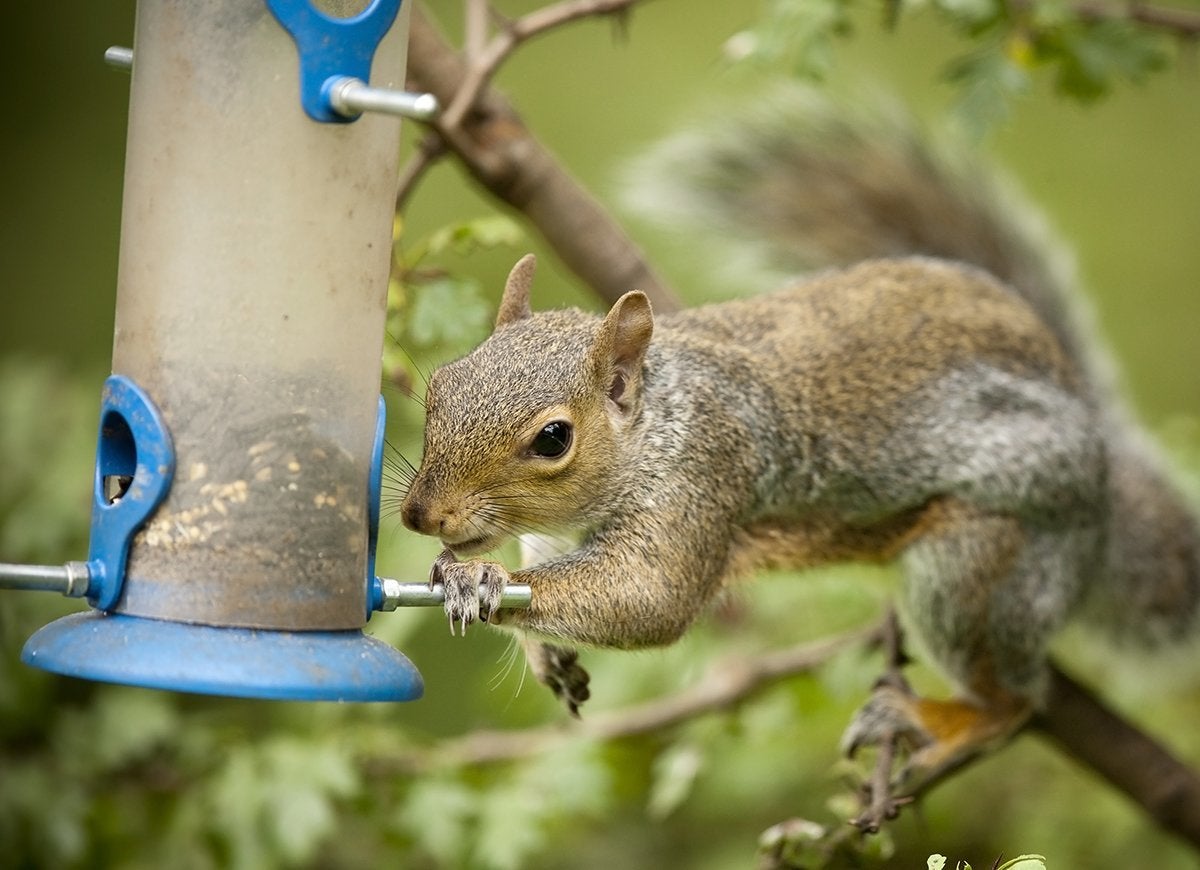
Squirrels are fun to watch, but can be destructive in the garden. These bushy-tailed varmints nibble on flowers, ravage fruit and nut trees, and most of all, love to empty out birdfeeders. While none are wholly effective, there are squirrel-proof birdfeeders that close or spin under the weight of a hungry squirrel trying to get a meal. Some gardeners find success by setting up a separate feeder with peanuts or dried corn just for the squirrels, which can keep them satisfied enough to leave the regular birdfeeders alone. You can also try spraying a repellent with hot pepper or peppermint around flowers, fruit trees, or vegetables to discourage squirrels from nibbling, but you’ll have to reapply frequently.
Spiders
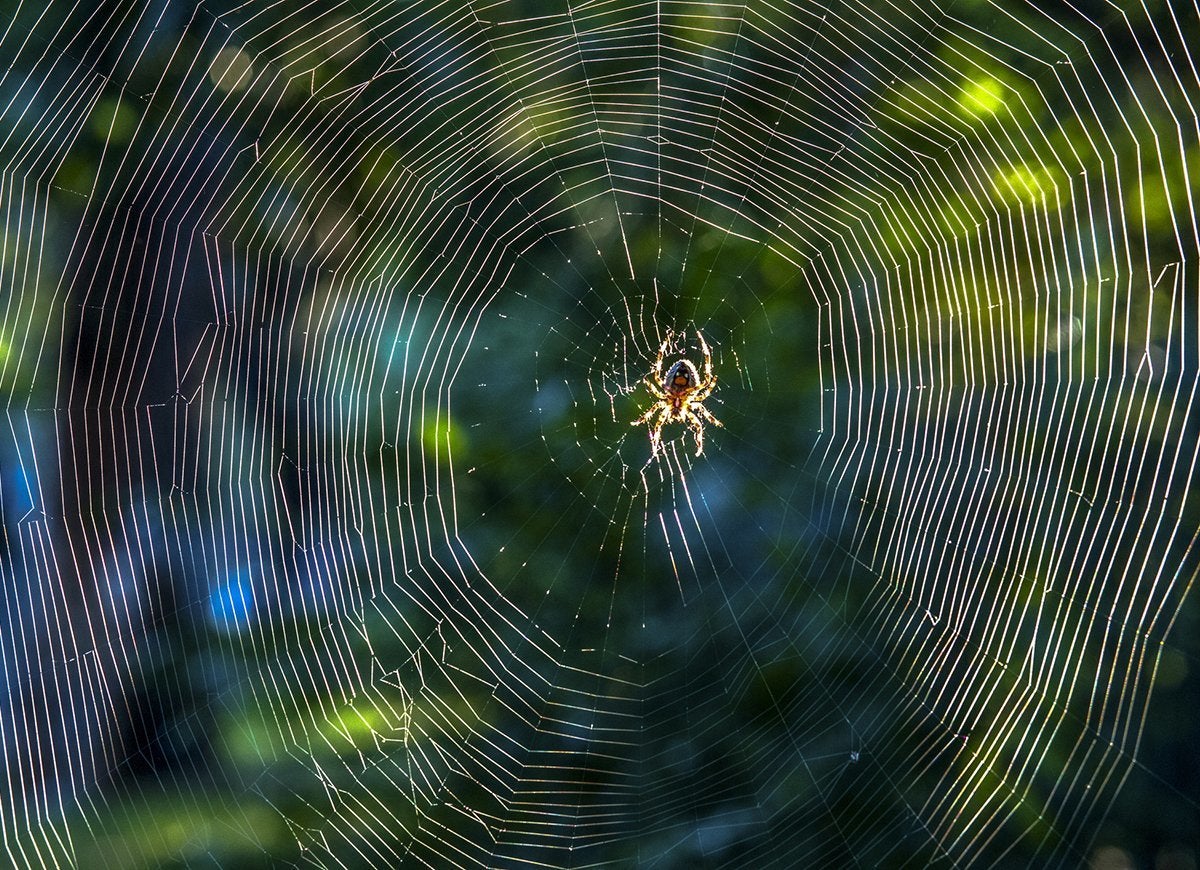
While it’s best to leave nonvenomous garden spiders alone, as they serve as nature’s army against marauding insects, if you have an excessive amount of webbed visitors, or black widows are a problem, you can discourage them from sticking around by consistently knocking down their webs with a stick or broom handle. Also, it’s a good idea to remove piles of wood, compost, or other debris that serve as convenient hiding spots and homes for the eight-legged visitors. Don’t bother spraying insecticides; spiders aren’t insects and aren’t as strongly affected by these chemicals.
Related: Pest Predictions: 2025 Could Be a Doozy for Many Households
Birds
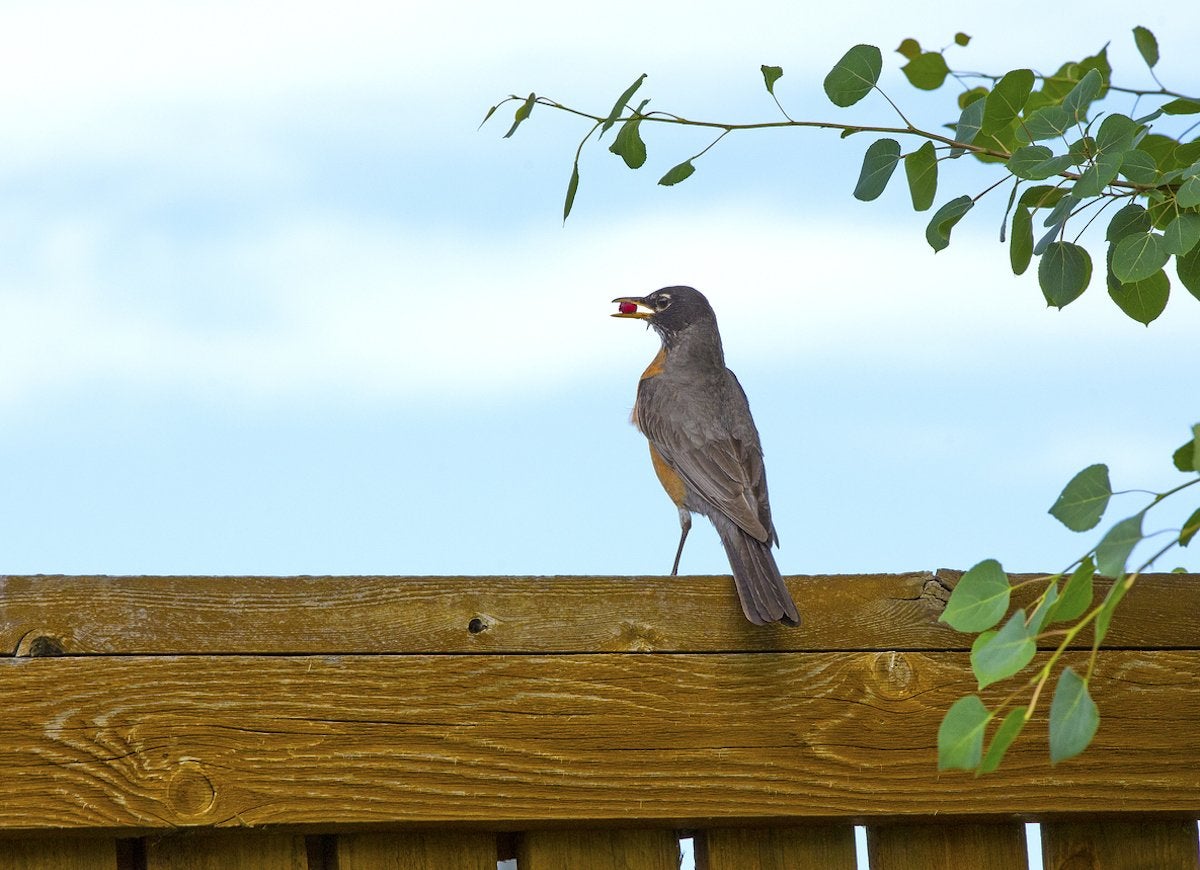
Birdwatching is one of the many enjoyable aspects of gardening, but if hungry birds are raiding your fruit trees or berry shrubs, leaving little behind for you, it’s time to take action. Cover your crops with bird-proof netting, available at many nurseries, during the active fruiting season, or hang strips of shiny foil, metallic safety tape, or metal pie pans from the branches to frighten would-be berry raiders. You can also try an owl decoy, but don’t leave it sitting in one place; the birds will quickly learn to ignore it. Move the decoy to a different spot each day to keep hungry birds guessing.
Tomato Hornworms
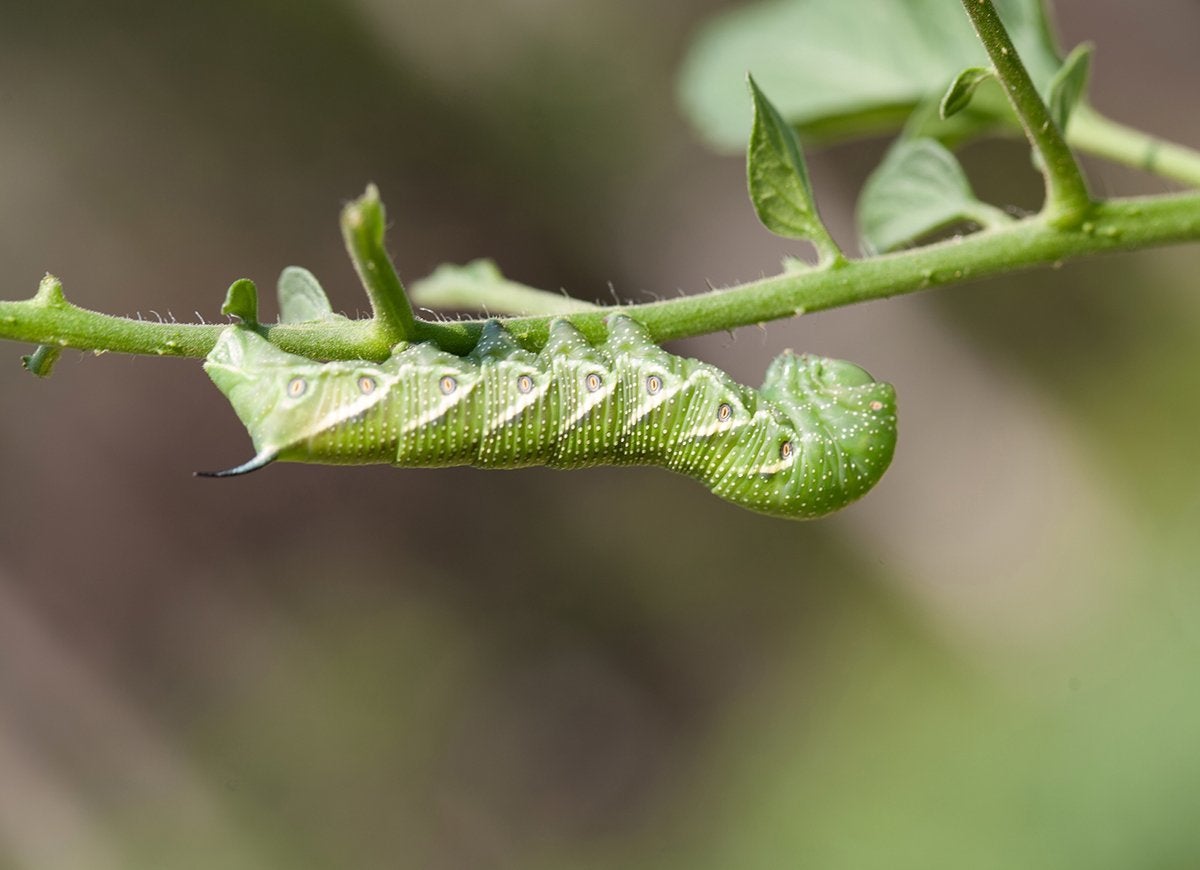
The bane of tomato growers everywhere, tomato hornworms—large green caterpillars with white or yellow diagonal stripes and a black “horn” on their rear—are the larval form of the five-spotted hawkmoth. These voracious caterpillars devour tomato plants, although they’ll also feed on eggplant, peppers, and potatoes. If you only have one or two tomato vines, you can control the caterpillars simply by picking them off by hand and tossing them into the trash. However, if you have many plants, or are squeamish about touching the creepy-crawlers, spray Bacillus thuringiensis (Bt) on the tomato plants before the caterpillars reach full growth.
Rodents
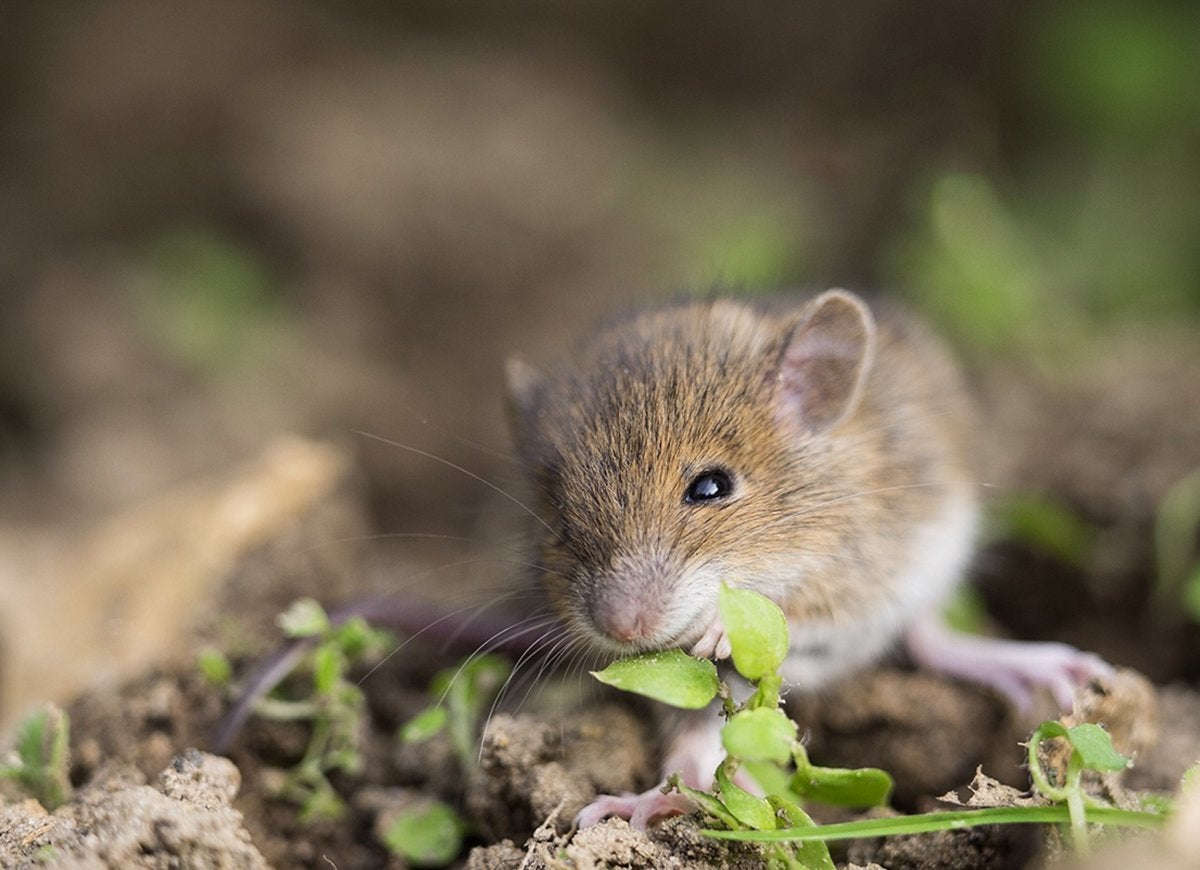
Mice are often attracted to fruit and nut trees, vegetables patches, and birdfeeders. If trapping and killing the rodents isn’t an option for you, and you don’t have a cat or dog willing to take over mouse patrol, your best bet is a no-kill trap, which humanely imprisons the rodent without harming it. You’ll then need to release the mouse at least three miles from your garden, as these small rodents have an uncanny ability to find their way back home.
Sap Suckers
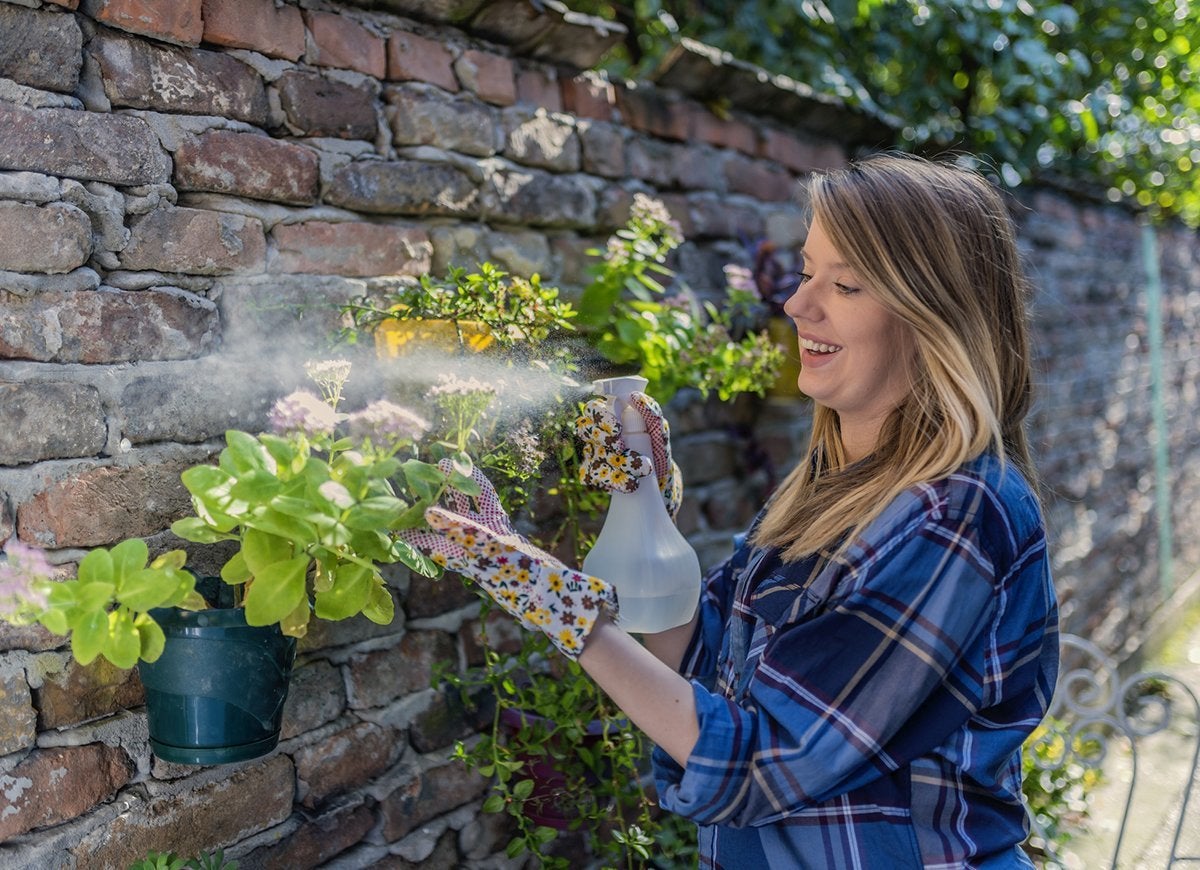
Just about every gardener has to deal with common sap-sucking insects at some point, including scale, spider mites, mealy bugs, and aphids. These small pests tend to congregate in clusters on new foliage or between plant stems, and weaken or kill the plant by sucking away its sap. An easy natural treatment for these nuisances is a DIY soap spray, which kills the insects by drying them out or smothering them. Make your spray by mixing a tablespoon of a gentle, pure liquid soap such as Castile or all-natural dishwashing soap without bleach or detergents into a quart of water in a spray bottle. Spray the infested plant thoroughly, being sure to soak all of the insects. Repeat at the first sign of re-infestation.
Lawn Grubs
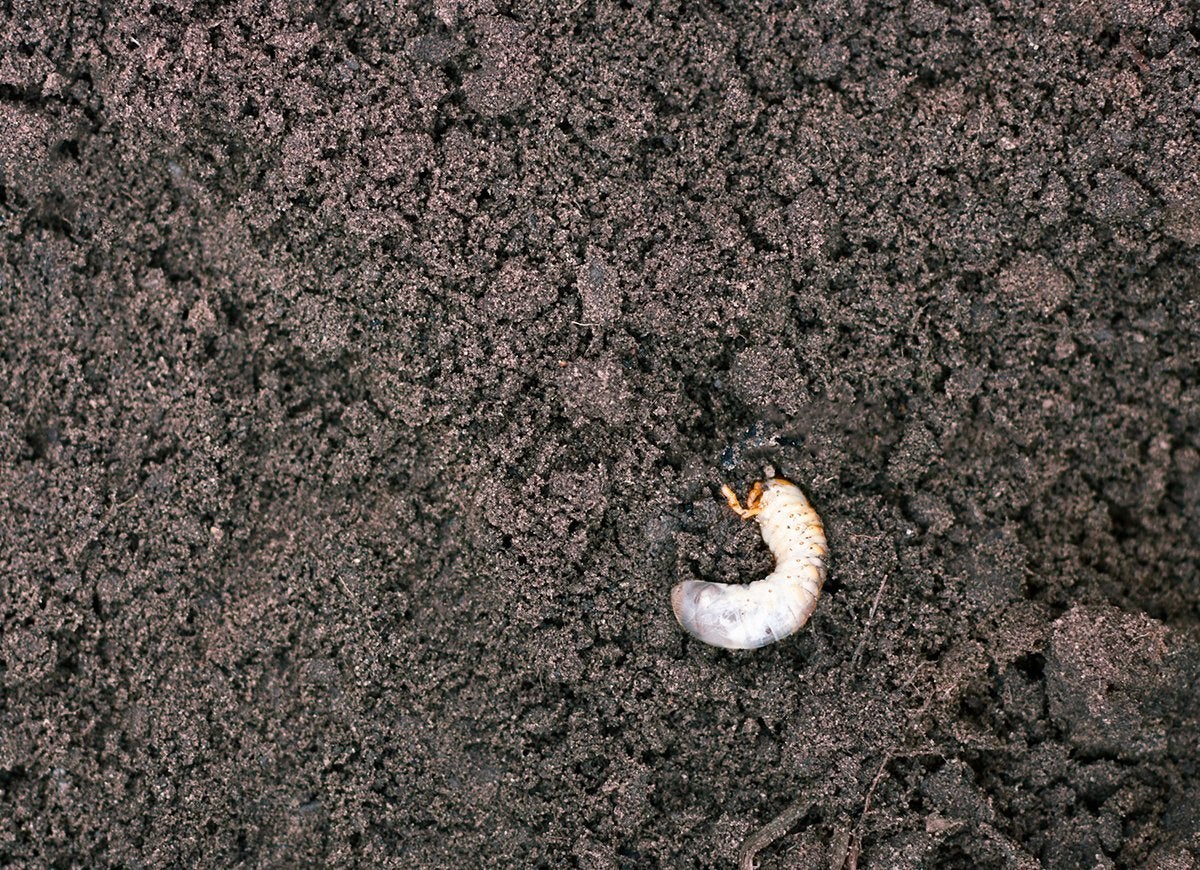
There are several types of lawn grubs, the larval form of beetles, that live underneath your turf and feed on its roots, creating large patches of weakened or dead grass. Defend against a lawn grub infestation with an application of nematodes. These microscopic worms actually penetrate into the grubs, killing them within a day or two. Most nurseries and home improvement centers sell beneficial nematodes in powder or liquid concentrate. Simply mix the nematodes with water, spray over your lawn, and let the nematodes do their thing. For best results, treat your lawn in late spring or early fall, when the grubs are most susceptible to a nematode attack.

This Is the Year for a Kitchen Renovation
Whether you’re selling or staying, everyone can get something out of a kitchen update. Learn why we consider this renovation the Most Valuable Project of 2025 and how to stay on budget.
